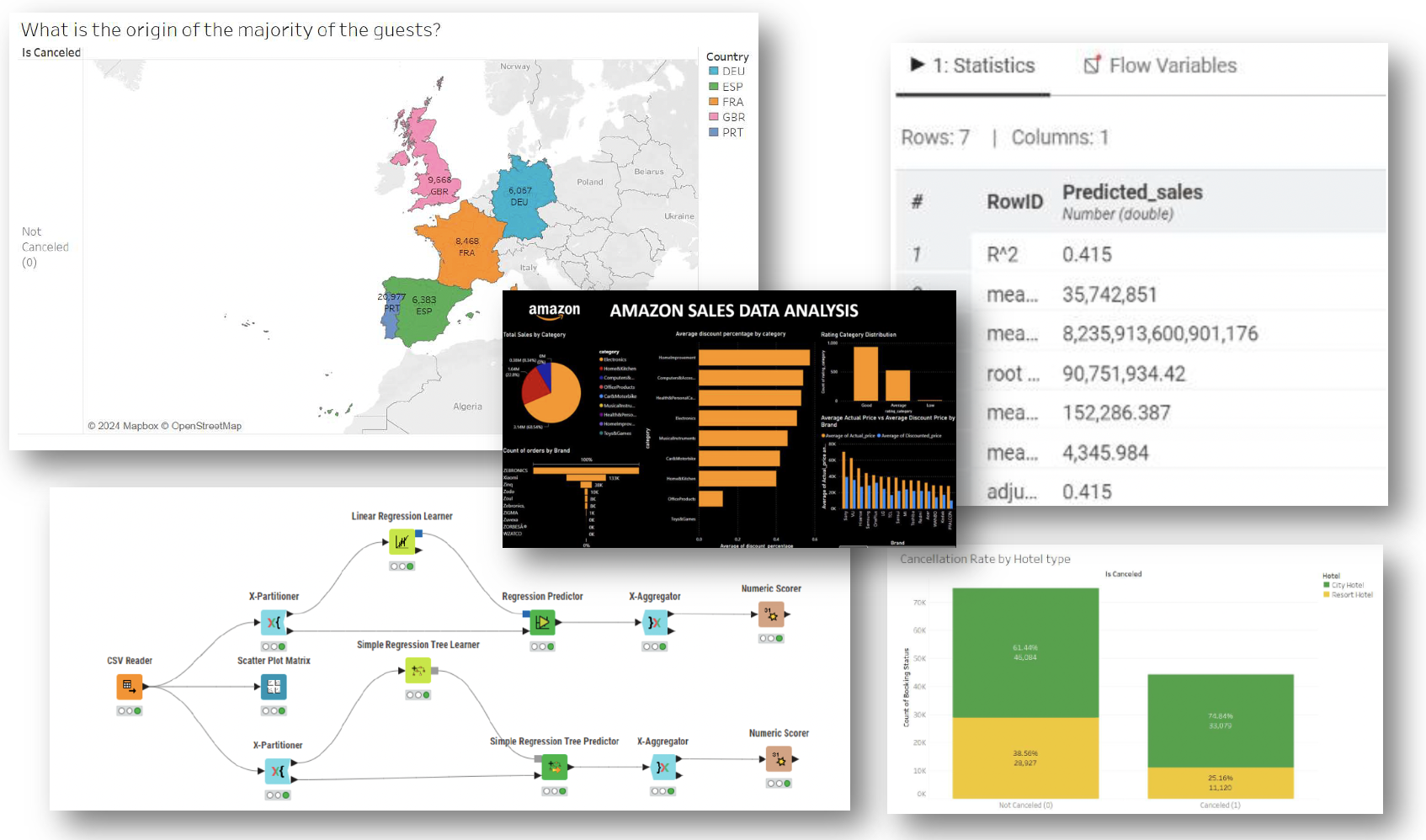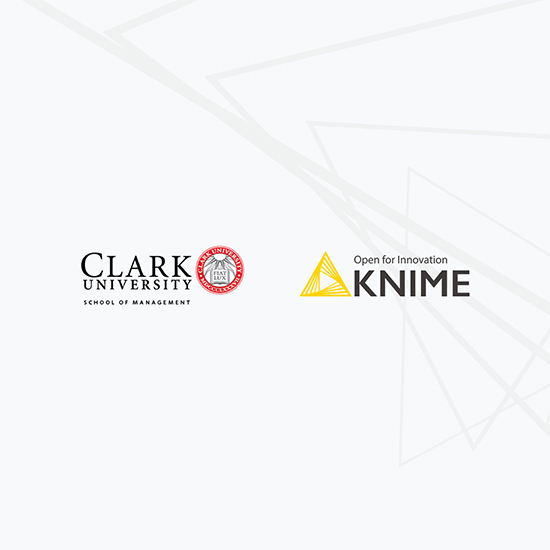KNIME’s Educators Alliance collaborates with educators to run student challenges and bring gamification into teaching data science. The challenges take the form of a project, executed individually or in teams, and the best solutions are recognized by an award. Rooted in real-world data, the challenges foster collaboration and constructive competitiveness between learners. This gamification approach to learning helps beat the content forgetting curve, and equips learners with solid knowledge of data analytics – a skill that remains relevant even after they are done with their degrees.
Congratulations to the award winners of the Applications of Analytics Business student challenges headed by Professor Hamid Ahady from Clark University. Ahady’s students competed to analyze data from different industries and either suggest performance improvements or uncover insightful correlations. The winning teams built solutions that provide insight on booking cancellation factors, predict Amazon sales data, and estimate the risk of developing lung cancer.
From challenge kick-off to winning teams
Professor Ahady got in touch with us to co-organize this challenge right after we opened a call for applications early in 2024. After his proposal got accepted, we kicked off the collaboration by introducing KNIME Analytics Platform to his students, highlighting different use cases.
The class split into groups of 2-4 students and, for two months, they dove deep into data preparation, predictive analytics, and data visualization techniques to understand key aspects of different industries and uncover valuable insights.
By the end of the semester, the teams turned in their KNIME workflows and reports, and also presented their work in class.
Upon evaluation, three teams stood out:
- In first place, Lichia Fu and Napasorn Lohakij
- In second place, Sakshi Jain, Gobind Uttam Kumar, Siddhi Ghai, and Mukesh Gutta
- In third place, Dhruv Kaushik Pancholi, Shubham Gosavi, Shreya Singh, and Devki Kukadia.
Winning solutions
Each team in the challenge tackled a different industry and explored distinct datasets, leading to a nice variety of solutions.
Feature selection & modeling techniques to understand booking cancellations
Lichia Fu and Napasorn Lohakij examined the problem of hotel reservations, and used feature selection and modeling techniques to better understand what factors have the most impact on booking cancellations.
Data preprocessing & linear regression for accurate prediction of sales data
Sakshi Jain, Gobind Uttam Kumar, Siddhi Ghai, and Mukesh Gutta used data preprocessing techniques and linear regression to analyze Amazon customers and accurately predict Amazon sales data.
Predictive models estimate risk of developing lung cancer
Last but not least, Dhruv Kaushik Pancholi, Shubham Gosavi, Shreya Singh, and Devki Kukadia performed a thorough literature review on lung cancer and then created predictive models to estimate the risk of developing this illness, taking a large variety of factors into account.

The winners were awarded with digital badges acknowledging the quality of their work, coupon codes to get all KNIME certifications for free, custom-made trophies, and an assortment of KNIME gadgets.

A successful student challenge collaboration
The Applications of Analytics in Business challenge worked as an opportunity for students to learn about low-code and the power of principled data analytics. We would like to congratulate all students who participated and used KNIME in their projects, and thank Professor Ahady for co-organizing this challenge with us. Here’s to more collaborations with Clark University!
About Clark University
Founded in 1887, Clark University is a renowned private research institution with a legacy of academic excellence and social impact. In over a century, Clark University has cultivated a global network of partnerships with universities, research institutions, and organizations across various fields of study. The School of Business (previously known as School of Management), established in 1982, embodies Clark's commitment to social innovation and responsible business practices. The School of Business offers a multidisciplinary approach, preparing professionals in areas such as business analytics, accounting, finance, marketing, management, and social impact. Clark University's campus features a unique blend of historic and modern architecture, providing advanced teaching facilities, state-of-the-art laboratories, collaborative spaces, and a vibrant intellectual environment for both undergraduate and graduate students.

